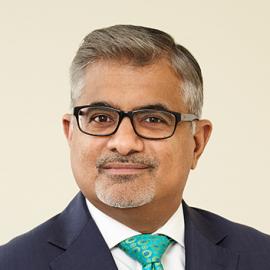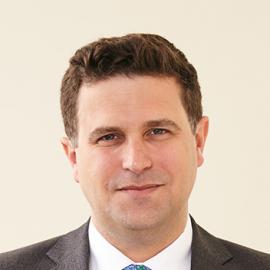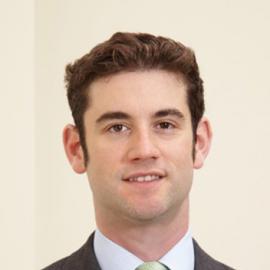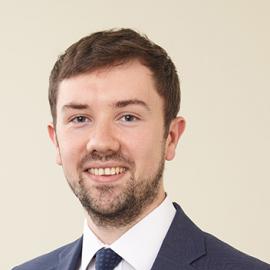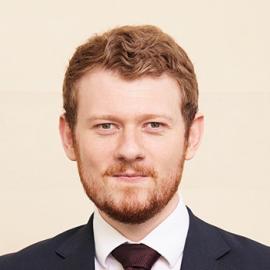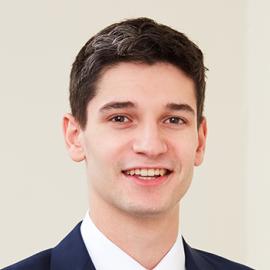
OVERVIEW
In an extensive Judgment of over 200 pages, Mr Justice Henshaw rejected jurisdiction challenges brought by the Defendant international reinsurers on the basis of Russian exclusive jurisdiction clauses (EJCs). Finding that the mostly western owners and lessors of over 200 aircraft were very unlikely to receive a fair trial in Russia, he refused to order a stay of the English proceedings.
The case is one of The Lawyer’s Top 20 Cases of 2024. In total over 40 counsel were instructed for the jurisdiction hearing by 14 firms of solicitors, including no fewer than 10 Quadrant counsel, set out below.
A. Background
The Claimants in the English proceedings are owners, lessors, financing banks (or their assignees) or managers of certain aircraft and/or aircraft engines which were leased to Russian airlines under leases governed by English, Californian or New York law.
The lessee airlines were required under the leases to insure the aircraft against all risks and war risks, and to obtain reinsurance on the international market containing a cut through clause permitting (according to the Claimants at least) the Claimants to sue the reinsurers directly in the event of insurance claims arising.
Following the invasion of Ukraine by Russia in February 2022, and as a direct or indirect result of the sanctions imposed by the EU, the US and the UK on Russia, the Claimants cancelled the leases and demanded the return of their aircraft. The Russian airlines failed to return those aircraft, and they remain in Russia to this day.
The Claimants sued the Defendant reinsurers under the cut-through clauses. Almost all of the served Defendant reinsurers initially challenged the jurisdiction of the English Court on the basis of EJCs requiring all disputes to be submitted to the Russian Courts. Prior to the jurisdiction hearing, a significant number of those reinsurers withdrew their challenges.
The Claimants opposed the jurisdiction challenges, primarily on the basis that they would not obtain justice in Russia. They also argued that to require them to pursue their claims in Russia would be contrary to English public policy because it would undermine the western sanctions imposed on Russia and give effect to Russia’s countermeasures relating to the aircraft and their leasing. The Claimants also submitted that, in exercising its discretion, the Court should give considerable weight to the fact that allowing the challenges would result in an undesirable multiplicity of proceedings and a risk of inconsistent judgments given that a large number of similar claims would be proceeding before the English Court in any event.
B. The Judgment
Henshaw J heard all of the jurisdiction challenges relating to Russian EJCs in parallel over four days in February 2024, and handed down judgment on 28 March 2024.
(1) Rulings as to the applicable legal tests
Strong reasons required to decline to stay proceedings
Henshaw J held that where a claim is brought in England in contravention of an EJC in favour of a foreign court, the presumption is that the English Court will grant a stay of the English proceedings, unless the party wishing to avoid the effect of the EJC can point to strong reasons for the Court not to do so.
Having considered a large number of relevant authorities, the Judge rejected dicta suggesting that the party wishing to avoid an EJC might have to meet a higher threshold of establishing “overwhelming” or “very strong” reasons.
The relevance of foreseeability
Henshaw J ruled that the authorities generally distinguished between factors of convenience and considerations of justice when discussing foreseeability, and that in principle an unfair trial is qualitatively different from both disadvantages of convenience (such as the location of witnesses) and from other matters such as the availability of appeals or disclosure. As, such there was no “hard-edged” test based on the foreseeability of an unfair trial.
Instead, the Judge held that, whilst the Court was entitled to bear in mind the extent to which a risk of an unfair trial was foreseeable as a factor in exercising its discretion, such foreseeability would likely carry weight only to the extent that the parties could foresee a risk of an unfair trial in respect of the kind of dispute likely to arise under their contract. Mere foreseeability of injustice in the abstract was likely to be of little relevance.
The requisite likelihood of an unfair trial
There was considerable dispute between the parties as to whether a claimant had to show that it would not receive a fair trial on the balance of probabilities, or instead only need show a real risk of not receiving a fair trial.
Henshaw J held that:
“it will generally be necessary to show that the preponderance (in terms of weight and cogency) of the evidence indicates that it is likely that the agreed forum will not provide a fair trial. I would not, however, express the test in terms of having to prove the matter on the balance of probabilities.”
(2) Application to the Facts – Justice in Russia
Applying the legal principles set out above to the relevant facts and expert evidence, the Court found that the Claimants were very unlikely to receive a fair trial in Russia. In broad summary, this was due to the following factors:
- The substantial Russian state interest in and exposure to the claims;
- The unlikelihood of the Russian Courts being able to determine key issues objectively;
- The likelihood that the Russian Courts would apply provisions other than the governing law of the leases to key issues in dispute; and
- The fact that the Claimants were from “Unfriendly Foreign States” (according to Russian law).
Henshaw J ruled that the potency of these factors was not undermined to any significant degree by the Defendants’ arguments based on foreseeability.
(3) Other Factors
Henshaw J found that exercising the Court’s discretion to refuse to stay proceedings was further supported by (i) avoiding fragmentation and multiplicity of proceedings – in light of the fact that proceedings considering the same key issues would be proceeding in England in any event, and (ii) the extent that experts and client representatives would be unable to attend trials in Russia due to a risk of targeted attacks.
On the other hand, the Court did not rely on public policy in declining to stay proceedings. The Judge’s view was that to refuse a stay on the basis of public policy would require positive findings about the particular way in which a Russian Court would determine the claims if brought in Russia. He was hesitant about making such findings and therefore refused to determine the applications on that basis.
10 Quadrant counsel were instructed for the jurisdiction hearing, as follows:
Chirag Karia KC, Peter Stevenson and Benjamin Joseph (instructed by Peter Sharp, David Waldron and Paul Mesquitta at Morgan Lewis & Bockius LLP) represented the GTLK MLB Claimants, one of the largest groups of claimants bringing claims worth USD 2.45 billion. The jurisdiction challenges in the GTLK Claims raise additional issues specific to those claims which are currently proceeding to a final jurisdiction hearing in July 2024.
Robert-Jan Temmink KC and Tom Nixon (instructed by Peter Sharp, David Waldron and Paul Mesquitta at Morgan Lewis & Bockius LLP) represented the Merx MLB Claimants.
Matthew Reeve KC and Joseph England (instructed by Simon Hens at McGuire Woods LLP) represented a claimant leasing company, Genesis GASL Ireland Leasing A-1 Limited.
Guy Blackwood KC, Tom Bird and Robert Ward (instructed by Andrew Krausz, Sonia Lopez and Adam Baker at Weightmans LLP) represented certain Hull All Risks Defendant Reinsurers.

